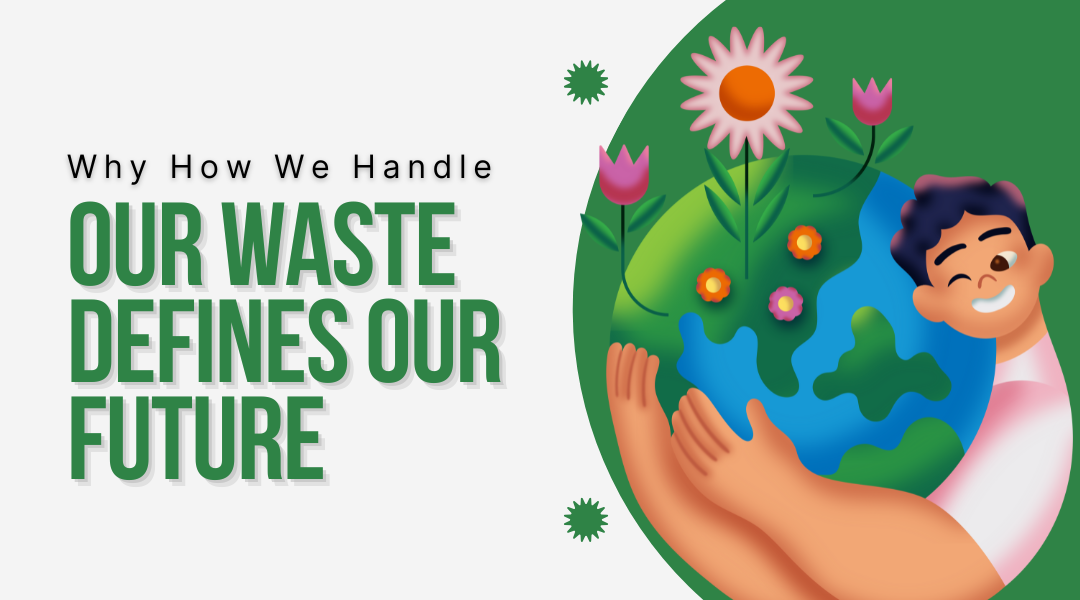We don’t often think about our trash once the bin lid closes. It just… disappears. But in a world of seven billion and counting, that “out of sight, out of mind” mentality is catching up with us. The mountains of waste we generate aren’t just an eyesore; they’re a fundamental challenge to our planet’s health, our economic ingenuity, and the very way we choose to live. It’s time to change the conversation from mere disposal to true management.
More Than Just a Clean-Up: An Environmental Lifeline
Think of waste management not as a chore, but as the planet’s immune system. When that system fails—when plastic drifts into oceans or chemicals leach into soil—the consequences ripple through entire ecosystems. It’s not just about a littered park; it’s about microplastics in the fish we eat and toxins in the water we drink.
Effective waste management is our most direct tool to stop this cycle. For instance, by composting organic waste, we can dramatically reduce the methane—a potent greenhouse gas—released from landfills, while simultaneously creating rich, fertile soil that can rejuvenate degraded farmland. This isn’t just tidying up; it’s active healing for the land.
The Unsung Hero: Recycling as a Launchpad for Innovation
Recycling is often reduced to a blue bin, but it’s so much more. It’s a gateway to a smarter, more circular way of living. Every glass bottle melted down or aluminum can transformed anew saves the immense energy required to create them from scratch. But let’s push the concept further.
True innovation is happening in places where old fishing nets are reborn as skateboard decks or discarded plastic is woven into durable fabric for high-performance clothing. This is where environmentalism meets entrepreneurship. It’s a thriving sector that doesn’t just “save the planet” in an abstract sense; it builds new industries and proves that sustainability and profitability can go hand-in-hand.
The Economic Engine No One Saw Coming
The green economy isn’t a vague future concept—it’s hiring right now. Beyond the familiar faces of sanitation workers, this field is creating roles for material scientists developing new biodegradable polymers, engineers designing AI-powered sorting systems, and logistics experts optimizing collection routes for zero emissions.
Investing in modern waste infrastructure isn’t a cost; it’s a down payment on a resilient economy. It builds local jobs that can’t be outsourced and fosters homegrown technological advances that can be exported globally. It’s about building an economy that is built to last because it’s built on regeneration.
The New Traveler’s Compass: Seeking Sustainable Destinations
Today’s savvy traveler is looking for more than a pretty beach; they’re seeking a story they can feel good about. A destination’s approach to waste has become a powerful part of its brand. Imagine hiking a trail in a national park where you see separate, clearly marked bins for compost, recycling, and landfill, and know that the lodge you’re staying in uses a greywater system.
This commitment is magnetic. It draws in visitors who are willing to support and spend their money in places that share their values. From the islands of Croatia managing tourist waste to protect the Adriatic Sea to the zero-waste initiatives in Costa Rican eco-lodges, responsible waste management is becoming a cornerstone of a successful, modern tourism industry. It protects the natural beauty that attracts people in the first place, creating a virtuous cycle of preservation and prosperity.
Conclusion: A Choice We Make Every Day
Ultimately, rethinking waste isn’t just a policy issue—it’s a personal one. It’s about the choices we make every day: choosing products with less packaging, supporting brands that use recycled materials, and embracing the simple power of composting.
By shifting our perspective, we can transform our waste problem into one of our greatest opportunities. It’s a chance to foster green innovation, build a robust and equitable economy, and protect the breathtaking corners of the world we love to explore. The future won’t be written by the trash we throw away, but by the value we choose to find in it.
